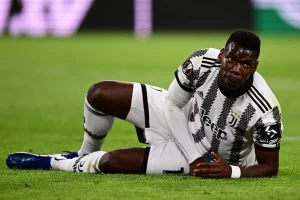
Celtic reported “record set of financial results” for the year ending in June, including a pre-tax profit of £40.7 million. The revenue increased by approximately £32 million to £119.9 million, a more than £34 million increase over the similar amount last year.

The men’s squad finished second in the SWPL while playing in the group stages of the Champions League previous season, won the domestic treble, and generated a $14.4 million surplus via player trades. During that time, Celtic sold Giorgos Giakoumakis, Josip Juranovic, and Jota.
Early in June, Celtic manager Ange Postecoglou departed for Tottenham, and Brendan Rodgers was brought back to Glasgow to take his position.
Celtic, who recorded total liabilities of £112.1 million, is back in the Champions League and will begin their season on Tuesday away to Feyenoord.
“This represents a record set of financial results for the club,” said Peter Lawwell, who took over as chairman in January.
The £31.7 million rise in revenue can be attributed to the club’s participation in the UEFA Champions League in 2022–23 as opposed to the Uefa Europa League the year prior, which increased earnings from ticket sales and media rights.
In addition, our Australian tour and a record-breaking year for our retail company both played a big role in the growth. The considerable revenue rise mentioned above, together with a gain of £14.4 million on the sale of player registrations, primarily from the sales of Jota, Juranovic, and Giakoumakis, contributed to the £34.6 million increase in profit before taxes.
Additionally, we recognized £13.5 million in other income from a variety of sources.
In addition, Lawwell mentions “the significant investment that the club is planning to make in developing our Barrowfield training facility,” which is distinct from their primary Lennoxtown training location.
He continued, “It is important to emphasize that it is critical that we maintain a cash buffer in reserve given the widening difference between the amounts that can be made between the Champions League and the Europa League.
The benefit of having cash reserves gives us the flexibility to manage through seasons where we play in the Europa League with the ability to retain our squad rather than having to sell key players to make up the financial difference between the two competitions. History has shown us that we will not always be able to qualify for the Champions League.





